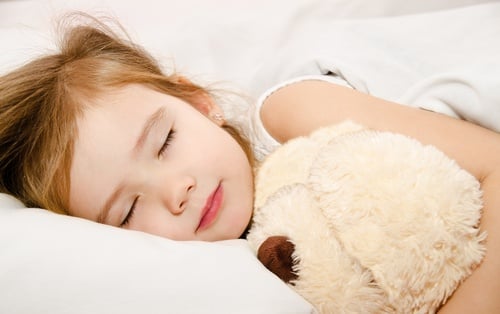How Much Sleep Does My Child Need?
Parent’s Guide to a Healthier Children’s Sleep (Updated 2019) – Sleep Reports
Sleep apnea is rare in childhood as it usually affects adults. When it occurs in children, it can be very serious. Sleep apnea causes the affected person to stop breathing for short periods during the night. If your child has the condition, you may hear them snoring or breathing strangely, and it can disturb their sleep.
Sleep apnea in children requires prompt treatment because it can lead to learning and behavioural problems, issues with growth and heart problems. Children with the condition may need to have their tonsils or adenoids removed to clear their airway. They may also need a special mask attached to a machine to help regulate their breathing while they sleep. If the child is overweight, weight loss may help to improve or resolve their condition.
Even if your child does not have sleep apnea, parents face many obstacles getting their baby and themselves the sleep they require. Hannah Stevens, blog writer for www.SleepReports.com shared an insightful and informative article with Alaska Sleep Clinic titled, “A Parent’s Guide to Healthier Sleep in Their Children.” Here is an excerpt:
We’ve created a quick and handy guide to how much sleep your child needs at every stage of their development, along with some handy sleep tips for each age. Remember that very young children will not get all of their sleep at night- nap times contribute to their total sleep time. By the age of around 5, your child will probably no longer need a nap and should have adjusted to getting all their sleep during the night.
Newborn-2 months: 16-18 hours
Newborns usually sleep in chunks of around 2-4 hours each time. At this stage, they are simply not wired to sleep through the night like an older child or adult can. Some babies may sleep better if you swaddle them and/or use a white noise machine, as both of these methods can be very reassuring. Babies of this age should sleep flat on their back to avoid the risk of Sudden Infant Death Syndrome (SIDS) and do not need a pillow. For a better night sleep, every parents should use a good crib mattress to reduce the risk of SIDS.
2-4 months: 14-16 hours
At this age, you can begin to try and establish the start of a bedtime routine, for example by having a soothing bath and a story before bed. Your baby will still need naps totalling around 4-5 hours per day.
4-6 months: 14-15 hours
Many babies are able and ready to sleep through the night by this age, although some may not be quite there yet. To encourage longer sleep sessions during the night, you can try feeding your baby immediately before putting them to bed.
6-12 months: 14 hours
Your baby can now be put down to bed when they are sleepy but still awake. They may be anxious to be left at first, but with plenty of reassurance they will learn that you will come back in the morning when they wake up. It’s also important to check that your baby cannot escape from their crib, as some children of this age will be able to climb out and could potentially injure themselves.
1-2 years: 13-14 hours
A predictable nap and sleep routine is important for children of this age. Try and put them down to sleep at the same time every day and try to engage in familiar, soothing activities before bed. Your child will still need 2-3 hours of nap time a day at this age, with the balance of their total sleep time at night.
2-3 years: 12-14 hours
Some 2-3 year olds will be ready and able to transfer to a regular bed. Many parents also potty train their children at this age. Although some night-time accidents are inevitable and normal at this age, it’s a good idea to limit food and drink close to bedtime to keep this to a minimum. All the same, it’s a good idea to invest in some protective, waterproof bedding during this time. If your child uses screens, try not to allow them too close to bedtime.
3-5 years: 11-13 hours
By the time your child is 5, they probably won’t need a daytime nap at all any more. Don’t be surprised if your child experiences nightmares for the first time around now- bad dreams are very common at this age.
5-12 years: 10-11 hours
Although your child is older, they still need consistent routines, rules and boundaries around bedtime. Limiting screen time before bed is especially important, as children tend to access devices more at this age. Many older children have busy routines full of extra-curricular and social activities. However, it’s important that you do not allow this to encroach on their need for enough sleep.
Connect with Hannah’s entire article here.
Alaska Sleep Clinic is the leader in pediatric studies in Alaska, having the only lab in the state with a Pediatric Medical Director, Dr. Harry Yuan. If you believe your little one has sleep apnea, download our free E-book about Pediatric Sleep Studies now.




